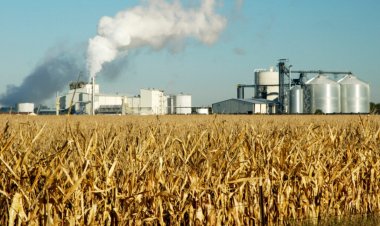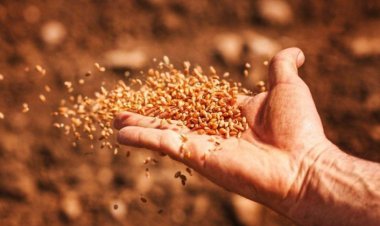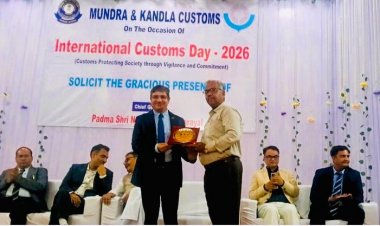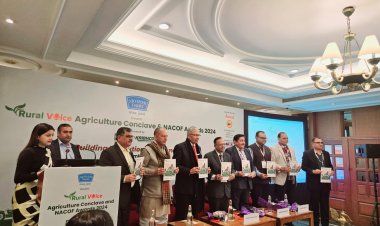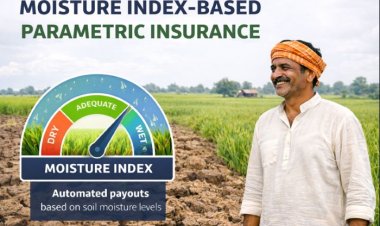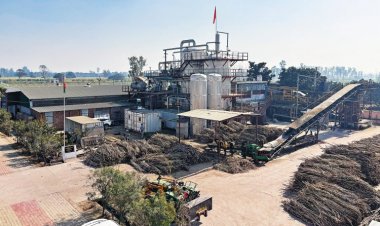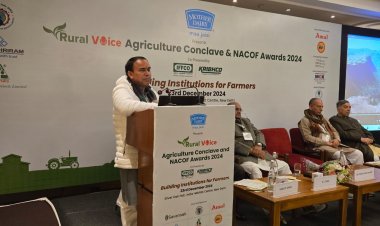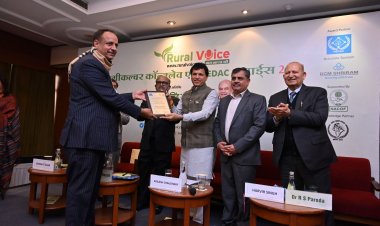Agri Min issues draft guidelines for registration of bio-stimulants
The agriculture ministry has come out with draft guidelines specifying efficacy data and trial reports required for registration of various categories of bio-stimulants under Schedule-VI of the FCO Amendment order 2021. It is mandatory for a person who wants to manufacture or import any bio-stimulant to list such bio-stimulant under Schedule VI of the Fertiliser (inorganic, organic or mixed) Control Amendment Order 2021, also called the FCO Amendment order.

The agriculture ministry has come out with draft guidelines specifying efficacy data and trial reports required for registration of various categories of bio-stimulants under Schedule-VI of the FCO Amendment order 2021. It is mandatory for a person who wants to manufacture or import any bio-stimulant to list such bio-stimulant under Schedule VI of the Fertiliser (inorganic, organic or mixed) Control Amendment Order 2021, also called the FCO Amendment order.
India is one of the few countries to define separate regulations for bio-stimulants. In 2021, the government notified bio-stimulant regulation through the FCO Amendment Order. As per this order, bio-stimulants will have to be first registered and prove efficacy before hitting the market. As per the draft guidelines for registration of bio-stimulants released on June 12, stakeholders should ensure that the data submitted along with the application for registration is authentic, replicable, utilisable and of good quality. The complete study reports should be submitted.
The requirement for registration usually includes data and information on proposed application; data on identity of the bio-stimulants (identity, composition, analysis and quality); data to assess risk to humans and the environment; data to assess efficacy of the product; its packaging (as per the material used by the applicant) and labelling requirements (contents to be defined from time to time).
Manufacturers are also required to submit the data on chemistry, bio-efficacy trials, and toxicity. Trials are necessary for each of the product for its registration. In case of 'toxicity' data requirement, the Central Bio-stimulant Committee (CBC) will examine case-to-case basis based on the history of safe use, and/or bio-safety data of the product accepted by Government bodies of India or any developed countries for its use in agriculture.
Before starting data generation or submitting application for registration, the applicant should ensure that the requirements are being complied correctly for the type of bio-stimulant to be registered under the desired category and for the intended purpose. As per the draft guidelines, the data generated via recognised scientific research organisations and/or industry associations in supervision of recognised research organisations for a particular bio-stimulant product by following accepted procedures and protocols can be used by multiple manufacturers through legally acceptable terms and conditions. "The product equivalence shall be maintained by the manufacturers."
In general, bio-efficacy data needs to be generated through replicated trials conducted at minimum of three agro-ecological locations under National Agricultural Research and Education System comprising ICAR Institutions, central and state agriculture universities and other recognised organisations and institutions. For label expansion claims, data waivers based on established scientific justifications may be considered on case-to-case basis. "The product composition once accepted under Schedule VI, can be used for manufacturing the product after seeking necessary approvals," the draft said. For toxicity data generation, existing literature and information should be analysed in a robust weight-of-evidence approach prior to undertaking animal tests.
"Animal testing needs to be avoided where ever possible and waivers may be granted, if justified on the basis of scientifically sound rationale and literature published in reputed journals/reports," the draft said. Scientifically validated in-vitro methods of safety evaluation can also be accepted to reduce experimental animal usage. Similarly, toxicity data on single species each of birds and fish can be accepted, it added. Shelf-life studies should be conducted as per the standard testing protocols and norms.
No fortification of bio-stimulants with any other nutrients or chemicals will be allowed. The naturally occurring beneficial elements limits/levels, which results during extraction process, can be considered on case-to-case basis. Fortification of pesticides will not be allowed and the maximum permissible limit of pesticides in the bio-stimulants, which can ingress during the manufacturing process, is notified separately. "Tolerance limits for naturally occurring phyto-hormones shall be defined on case-to-case basis, based on the availability of such phyto-hormones in the raw natural products from which the bio-stimulant is being derived," it said.
The data, if any, submitted by the applicant at the time of seeking provisional registration should not be required to be resubmitted again at the time of submission of application for regular registration by the same applicant, if composition and other claims remain unchanged. In general, data submission for provisional registration is not required, but for inclusion in FCO, complete data set including bio-efficacy and toxicity data along with other documents is required to be submitted. Standard designs, as prescribed from time to time for agro-chemicals, bio-fertilizers etc, should be followed for packaging of bio-stimulants.
As per the order, a 'bio-stimulant' means a substance or micro-organisms or a combination of both whose primary function when applied to plants, seeds or rhizosphere is to stimulate physiological processes in plants and to enhance its nutrient uptake, growth, yield, nutrition efficiency, crop quality and tolerance to stress, regardless of its nutrient content, but does not include pesticides or plant growth regulators which are regulated under the Insecticides Act, 1968.



 Join the RuralVoice whatsapp group
Join the RuralVoice whatsapp group

















